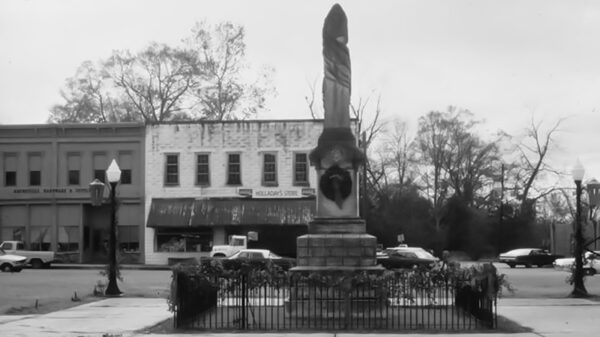|
Getting your Trinity Audio player ready...
|
In the labyrinth of legislative battles, Alabama state Rep. Ed Oliver’s quest to banish certain “divisive concepts” from K-12 classrooms and other public domains has been a heated topic for the past two years.
Despite his persistent efforts, Oliver has faced formidable challenges, particularly in the Senate. Yet, he remains undeterred, vowing to navigate this bill through the upcoming legislative session.
Oliver’s declaration of impending pressure from diverse groups to expedite the bill’s passage raises eyebrows. Who are these mysterious influencers? This question looms large, casting shadows on the bill’s integrity and purpose.
At the core of this legislative storm is the controversial debate surrounding Critical Race Theory (CRT) and its place in educational and public spheres. The proposed ban, targeting Black history and the African-American experience in America, seems less about education and more about erasing an integral part of America’s cultural and historical tapestry.
Why this eagerness to erase, to forget?
This Monday, as the nation commemorates Martin Luther King Jr. Day, Alabama and Mississippi will simultaneously celebrate Robert E. Lee Day. This peculiar juxtaposition underscores a deep ideological chasm. It’s a tale of two legacies – one of a civil rights icon and the other of a Confederate general – and the contrasting values they represent.
History, especially the dark chapters of slavery, forms an indelible stain on America’s moral canvas. But erasing these chapters from public consciousness doesn’t cleanse the stain; it only deepens it. The path to healing lies in acknowledgment and education, not in denial and obfuscation.
Historical injustices, whether genocide, slavery, or forced conversions, are part of the collective human legacy. They have shaped our societies politically, socially and economically. But history also showcases humanity’s capacity for good – to build, nurture and promote justice. Healing the wounds of history starts with acknowledging their existence.
CRT, at its core, is about understanding how systemic racism has shaped American society. It’s not just about individual acts of racism but about recognizing patterns that have historically disadvantaged certain groups and continue to impact them.
The debate over the Civil War and its underlying causes, especially slavery, continues to polarize. Southern states have erected monuments not as mere memorials of war but as symbols of a narrative that denies the true causes of the Civil War. The Confederate Constitution explicitly references slavery, contradicting the argument that the war was solely about states’ rights.
Our nation’s history with slavery extends beyond just ownership; it includes the horrific exploitation of enslaved women through sexual violence – a topic often sidelined in historical discourse. Enslaved women’s experiences ranged from violent rape to coerced concubinage, a spectrum of abuse that was legally sanctioned and socially normalized. What are today’s women of all races to learn from denying such violent sexual abuse?
As Rep. Oliver and his allies push for a ban on teaching Black history, they should recognize that history, however uncomfortable, cannot be erased. The wounds of history are etched in the fabric of American society, and confronting them is essential for genuine healing and progress.
Oliver’s proposed law might alter curriculums, but it cannot expunge the truth that is woven into every American life. History, after all, is not just a record of the past; it’s a mirror reflecting the ongoing struggles and triumphs of a nation striving to reconcile with its legacy.















































